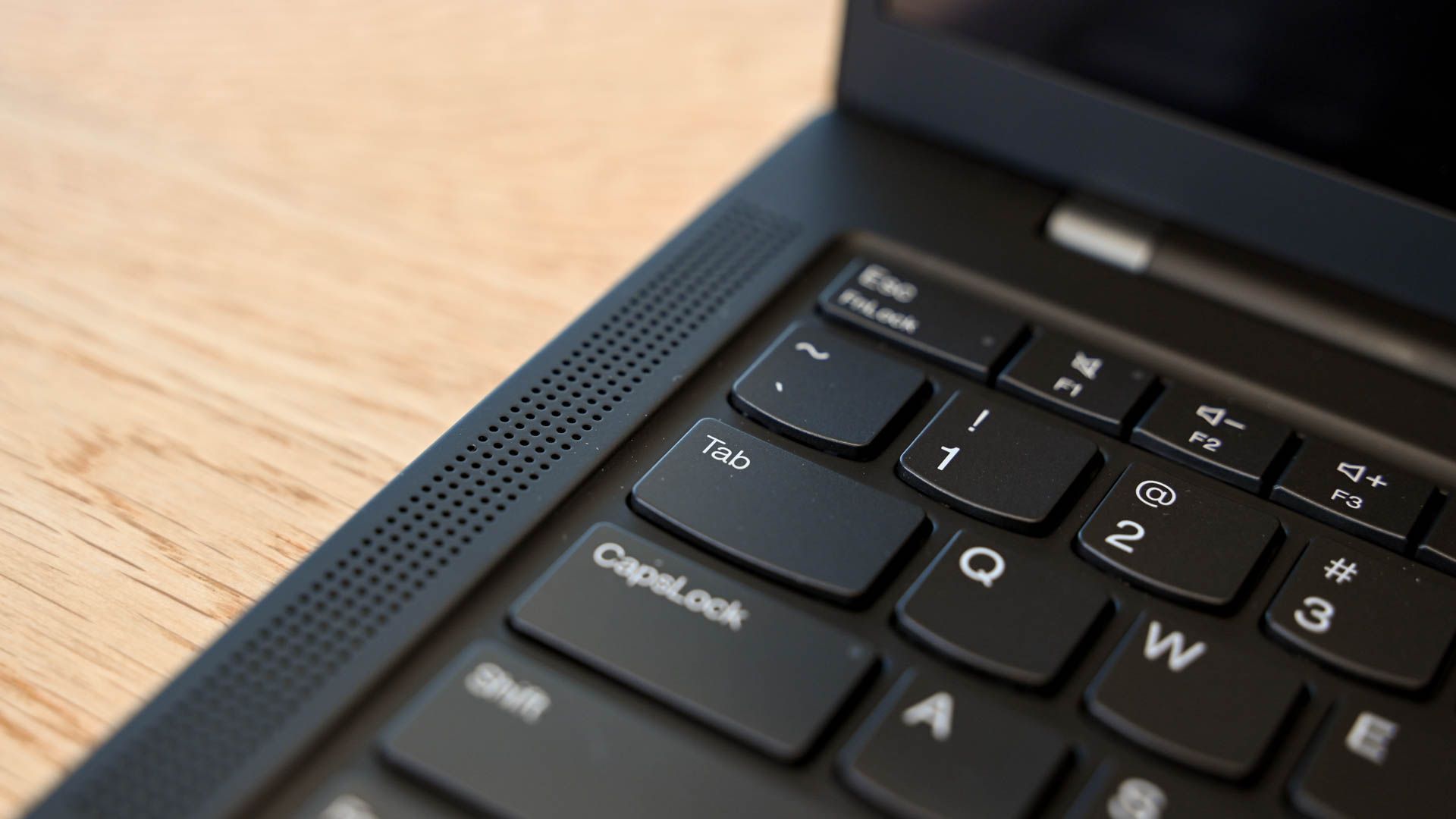Key Takeaways
- Many smartphones and tablets have amazing stereo speakers that provide wide soundstage and good audio separation, making media consumption enjoyable.
- In contrast, PC laptops generally have terrible sound with thin quality, no stereo separation, and lack of mids and bass, even in expensive models.
- Apple MacBooks stand out for their excellent laptop sound, offering rich sound, wide soundstage, and great audio separation, making them highly usable and raising the question of why more PC laptop makers don't prioritize audio quality.
If you have a mid-tier to high-end smartphone, you probably have no complaints about the sound when watching videos or even listening to music, but even high-end laptops seem to have absolutely terrible audio. Why can phones get it right?
Mobile Device Speakers Sound Amazing Now
I spend a lot of time consuming general content on smartphones and tablets. As I write this, that includes an iPhone 14 Pro, Samsung Galaxy S22 Ultra, an M2 12.9" iPad Pro, and recently for review purposes a ROG Ally handheld PC. One thing all of these devices have in common is that their stereo speakers sound absolutely amazing. Sure, you're not going to get the depth and breadth of a speaker larger than the phone itself, but at no point does the thought, "Man, this sounds awful," cross my mind. In fact, you don't really think about it at all as you sit through another episode of your favorite YouTube series.
ASUS ROG Ally
The ASUS ROG Ally is the most powerful handheld gaming PC to date, and offers a fantastic gaming experience and access to the massive PC gaming library, but it's let down by dismal battery life and serious concerns about thermal design and hardware issues.
Even better, somehow these devices use what I must imagine is black magic or technology from the future to achieve amazing stereo separation and wide sound stage. In the case of the ROG Ally, you even get pseudo surround sound, where you can clearly hear things coming from the sides during games. The iPad Pro, with its quad-speaker setup, easily beats the typical weedy speaker sound you get from modern ultra-thin TVs. Obviously not every phone or tablet out there is going to sound as good as these devices, but the principle here is that these tiny speakers, wedged into the most space-starved and compact devices in existence, can sound great.
Even High-End PC Laptops Have Terrible Sound
Which begs the question: "why do laptops sound so awful?"
Again, the caveat as always is "not all laptops," and models like the Lenovo Thinkpad X1 are an exception, but I've heard the speakers from enough PC laptops to know that the few with decent sound are few and far between, and it's not just entry-level back-to-school laptops that suffer from this either. In my case, I have an MSI GS66 Stealth and a high-end 17" workstation laptop. Both of these laptops cost several thousand dollars, and both of them have absolutely terrible speakers. They suffer from thin sound, with virtually no stereo separation, and no mids or bass. Even the most basic talking-head YouTube video will have you reaching for your headphones, and it's not clear why these large and expensive machines are beaten by the average iPhone when it comes to sound.
Apple MacBooks Hit It Out of the Park
Sticking with Apple for the time being, that brings up an example of laptop sound done right. I have both the entry-level M1 MacBook Air (which I consider a near-perfect computer) and the M1 Pro, neither of which are models with an additional subwoofer. The sound from my M1 Air's speakers are good enough to make portable Bluetooth speakers for music redundant, and for watching movies or YouTube they are stellar. Rich sound, wide soundstage, great audio separation. Again, I never feel the need to reach for my AirPods.
Whether it's hardware, software, or (most likely) a combination of both, MacBooks have long stood at the top of laptop sound, and it makes such a big difference to the general usability of these machines that it's unfathomable that more PC laptop makers aren't trying to get into the same audio ballpark.
Why Do Windows Laptops Have Bad Speakers?
I honestly have a hard time understanding why PC laptops in general have such poor audio. I can understand it in ultra-budget laptops where it may not be the highest priority, but there's no excuse for a $3,000 gaming laptop, or similarly-priced workstation computer to have weedy audio. One can imagine gaming laptop makers assuming that their customers will use a headset while gaming anyway (and they'd be right), but like all laptops, gaming laptops are used for all sorts of general media consumption. For business or general-purpose laptops, where you're likely to need more than one person to hear audio output from your laptop, it can be a real problem.
In handheld gaming PCs, where it does seem to be a priority, the results are generally great, and even the latest OLED Nintendo Switch has audio output far better than the typical PC laptop. If I could transplant the speaker system from the ROG Ally into my laptop, it would be transformative.
We Deserve Better Sound
Squaring this circle is a real puzzle. Clearly, the speaker and audio component technology exists to make even the smallest mobile devices sound acceptable, yet it seems not enough customers are complaining about thin, toppy, and frankly unusable audio on laptops that clearly have the physical space and financial margin to be equipped with something much better.
Perhaps it's that when we decide which laptop deserves our money, how good the speakers sound doesn't rank particularly high among the pros and cons. Once you've heard what good laptop audio actually sounds like, though, it's hard to imagine forking over significant amounts of cash for a computer that sounds like Woody from Toy Story's pull-string voice box.
